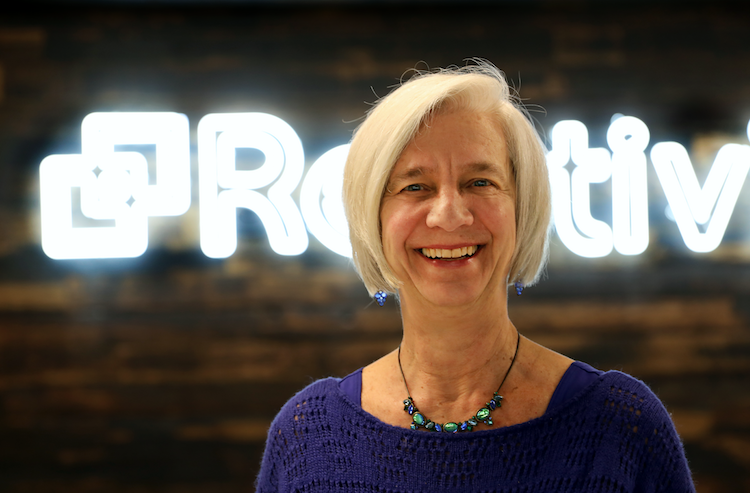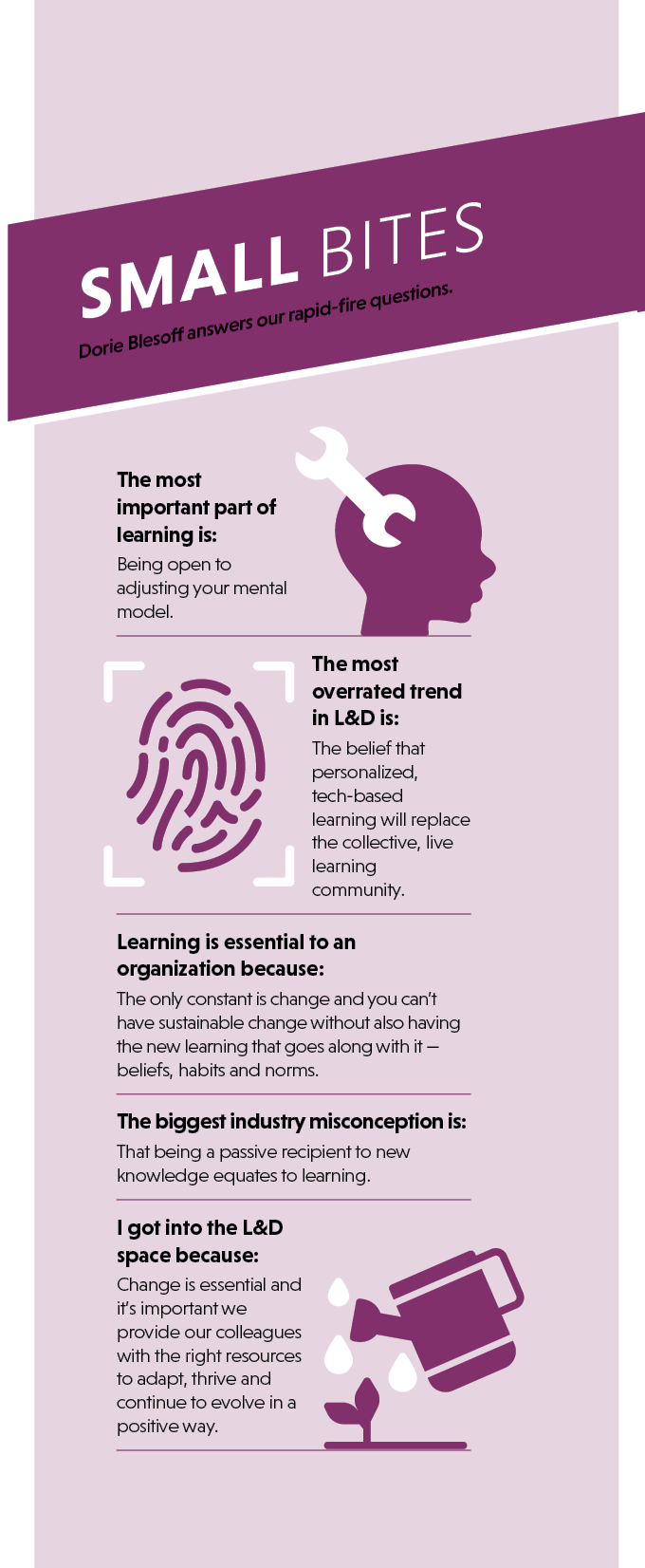 How did you start your career in learning?
How did you start your career in learning?
My career did not move into the learning field until I realized in my late 30s that I had a passion for working with organizations moving through and adapting to change — and that learning was instrumental to that. I decided to shift my career focus and went back to school for a master’s in organizational development as I also explored jobs within the learning and development field. At the time, the entry-level job that made the most sense in the field was in HR’s training and development function. Since then, I’ve held roles in organizational development and strategic HR, which often included creating programs for leadership development or building out corporate learning programs. I also have been fortunate to serve as adjunct faculty since 1996 at Northwestern University’s undergraduate and graduate learning and organizational change degree programs as part of my continued growth. Now I’ve seen how a learning career can evolve. Prior to my role as chief people officer at Relativity, I was a strategic HR consultant there focused on establishing a foundation for workforce and leadership development, which was a long-term investment leaders saw as critical.
 What attracted you to L&D?
What attracted you to L&D?
In my early career in health care, I started to experience the trend of major strategic and culture changes. I discovered I liked facilitating and communicating change initiatives centered on employee engagement; plus, I was good at it. At one organization, I founded an employee chorus group to highlight our mission, cultural diversity and to build community. To this day, as part of crafting and leading talent strategy at Relativity, I find that engaging people in their own development and helping them connect their passion back to the organization’s vision is energizing and deeply rewarding work.
What was your favorite trend of 2019?
I love that so many organizations now view investment in talent development as imperative. We see increasing evidence that today’s workforce looks for organizations that enable their personal and professional growth through a variety of learning opportunities. It’s great to see that sync up with how much we’ve been investing in employee growth and development here at Relativity to ensure we continue to evolve as a talent-first organization.
What lessons helped get you where you are?
Understanding it’s never too late in your career to make a change. Having a growth mindset is important to successful development because just as the job landscape is evolving, we as learners and professionals are evolving. I’ve found always staying in touch with what inspires me, coupled with being open to new possibilities, has allowed me to be courageous in asking for chances at new opportunities.
Your most important piece of career advice?
I have three. No. 1: To view your career as a portfolio and not “a job.” There are many ways to grow, express your passion or make a difference, be it through teaching, mentoring, volunteering or any opportunities that help you grow. No. 2: The second piece is geared to all the women who don’t apply for new opportunities unless they feel they fit 90 percent of the criteria — find the confidence and resourcefulness to try something new. Go for it! You never know. No. 3: Don’t think about everything you can do, think about what only you can do — and focus there!














